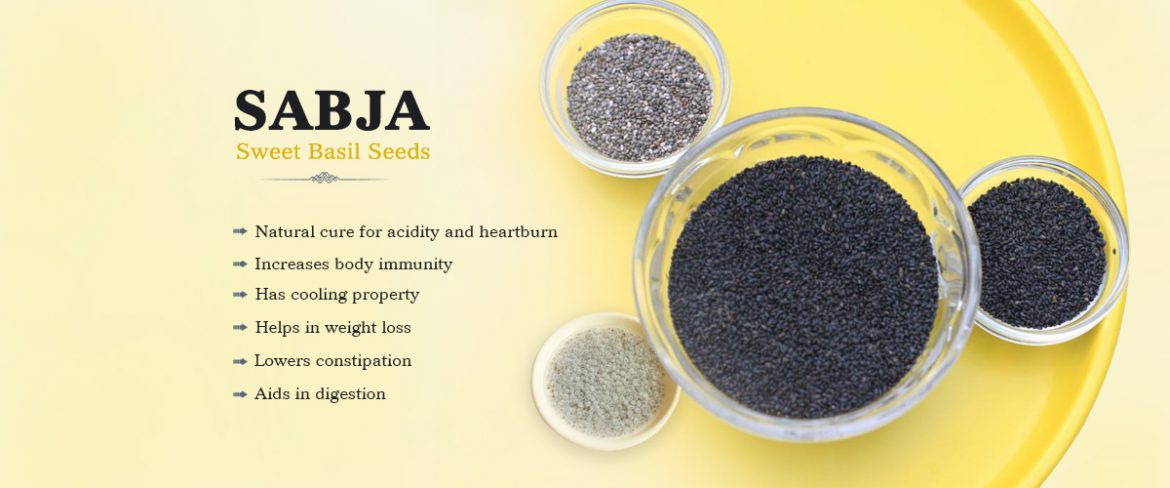A lot of us would have consumed these black, gelatinous seeds at one time or the other in our life, without having realized that they are Sabja – the basil plant seeds.
Also known as ‘Tukmaria seeds’, most of us are also unaware of how nutrient dense these are. These black, tear-shaped seeds, look surprisingly similar to chia seeds but unlike chia they are native to India and have very different properties.
The sweet basil plant is different from the Holy basil or Tulsi, which is a common sight in every Indian household and credited for its immunity-boosting properties. The herbs of the basil plant are known to be very healthy and so are the seeds. They are an excellent source of vitamins like K, A and C, rich sources of minerals like iron, manganese, copper and folate but contain no calories.
Let’s proceed further and understand their health benefits, uses and I shall also share some tips with you.
Have Cooling Property – It is due to this property that they find widespread use in India in summers, be it the falooda, milkshakes or the sherbet. Sabja seeds absorb the body heat and cool down the system instantly.
Acidity and Heartburn – Tukmaria seeds are also very helpful as a natural cure for acidity and heartburns. They act as a base and neutralize the acidic effect of the HCL in the stomach. Due to high mucilage they soothe the lining of the stomach and relieve the burning sensation caused due to acidity.
Aid in Digestion – Tukmaria seeds have volatile oils that help in reliving gas from the gastrointestinal tract. They also provide relief from bloating, indigestion, stomach cramps and flatulence etc.
Increase Body Immunity – The flavonoids vicenin, orientin and beta-carotene present in tukmaria seeds increase the immunity of the body due to their anti-oxidant effect.
Lowers Constipation – They help in lowering constipation by promoting bowel movement, and thereby removing toxins from the system. The mucilaginous gel formed on soaking in water acts like an emollient and has a laxative effect due to the high fiber content.
Induce satiety and help in weight loss – Tukmaria seeds should be eaten before meals to make the stomach feel fuller and prevent over-eating. They could be taken by mixing them with yogurt, coconut water and fruits as a snack to relieve hunger.
They also help in weight loss by slow conversion of starch into blood sugar. Their low-calorie content and high fiber value helps in doing so. Their high nutritional value ensures that there is no deficiency in the body.
Other than the stated health benefits, Sabja is known for beauty benefits too. It helps in hair growth (High protein, iron, Vitamin k) and in resolving skin issues (anti-bacterial and anti-fungal).
Use of Sabja
Sabja seeds are most nutritious when soaked in water and consumed. Add half a spoonful of dry sabja seeds into half a bowl of water. Within 15 minutes, they would swell up to 2-3 tbsp and become gelatinous and translucent. It is recommended to have at least two teaspoons every day to gain health benefits. These fragrant seeds do not really have a distinct taste and can be added to a variety of dishes for a nutrition boost. They are great as a garnish for sweet Asian drinks and desserts. Blended in a lemonade or sprinkled over kulfi, they impart their own fresh and grassy touch.
DCN TIP
- Instead of taking tea, coffee or cola, tukmaria seeds with milk or rose petals jam (Gulkand) should be taken to get instant relief from stomach burns.
- For constipation, tukmaria seeds should be taken with milk before going to bed
- Pregnant women should be cautious while consuming these as they can lead to unwanted uterine contractions.




